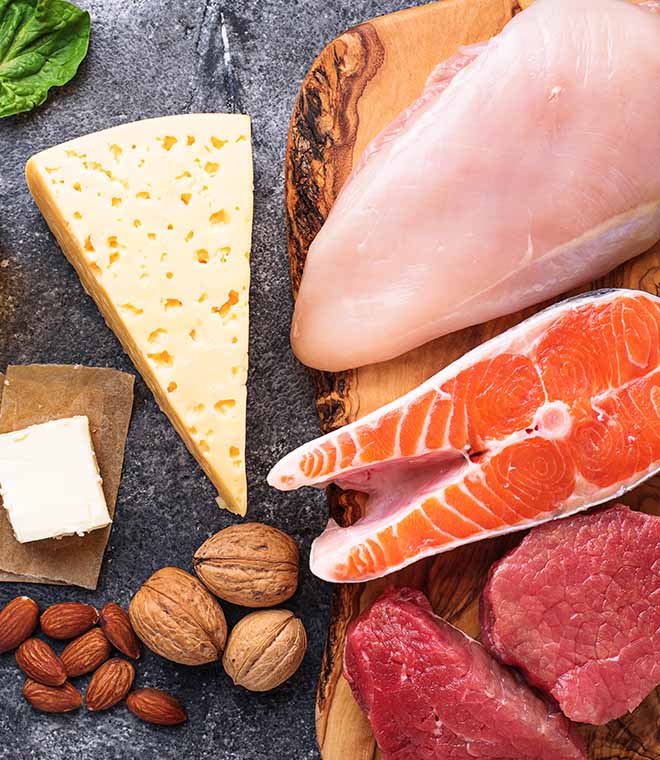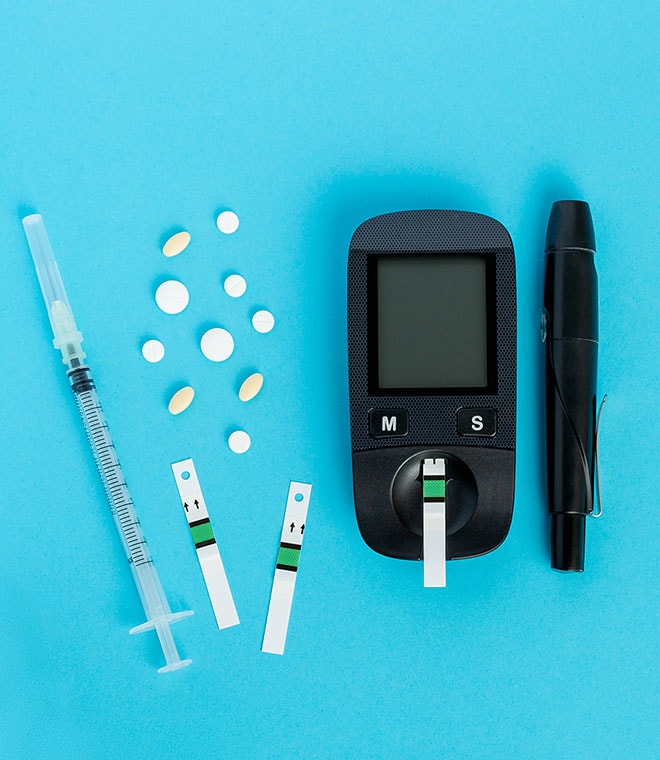Health
What Are Some Sugar Substitutes for Diabetes?
By Michelle Katz, MS, RD, certified diabetes care and education specialist Dec 31, 2024 • 4 min
If you have diabetes, cutting back on sugar is important for controlling your blood sugar levels, but that doesn’t have to mean going without the occasional sweet treat. Sugar substitutes provide an alternative way to sweeten foods and beverages.
1. Sugar alcohols: Despite the name, sugar alcohols don’t actually contain alcohol. Rather, they’re carbohydrates that occur naturally in plants. They can also be manufactured in a lab. You’ll often find them in sugar-free processed foods like gum and candy. There are several types, including:
- Erythritol, which is 60% to 80% as sweet as sugar
- Isomalt, which is 45% to 65% as sweet as sugar
- Lactitol, which is 30% to 40% as sweet as sugar
- Maltitol, which is roughly 90% as sweet as sugar
- Mannitol, which is 50% to 70% as sweet as sugar
- Sorbitol, which is 50% to 70% as sweet as sugar
- Xylitol, which is about as sweet as sugar
Compared to table sugar, sugar alcohols don’t impact blood sugar levels as much, and they contain fewer calories per gram. Eating sugar alcohols in moderation is likely safe for most people, but they can cause some gastrointestinal side effects, such as bloating and diarrhea.
2. Stevia: Sold under several brand names, including Truvia, stevia comes from a plant native to South America called Stevia rebaudiana. It’s about 200 to 400 times sweeter than sugar. You can purchase it in liquid and powder forms, and it can be used as a table sweetener and for cooking and baking.
Most stevia sweeteners are calorie-free, though some still contain a small number of carbs. However, Stevia doesn’t typically affect blood sugar levels. Side effects from stevia are rare but can include bloating, dizziness and nausea.
3. Aspartame: In 1981, the FDA approved aspartame for use as a food additive. Today, it’s one of the most commonly used sugar substitutes in soft drinks and many low-calorie and sugar-free foods. Aspartame is also sold as a table sweetener under several brand names, including Equal and NutraSweet Natural. Because it can lose its sweetness when heated to high temperatures, aspartame generally isn’t recommended for cooking and baking.
Compared to sugar, aspartame is about 200 times sweeter and contains fewer calories per serving. It typically doesn’t raise blood sugar levels. People who have phenylketonuria (PKU) should avoid aspartame.
4. Sucralose: Often referred to by the brand name Splenda, sucralose is an artificial sweetener approved for use as a food additive in the U.S. since 1998. It can withstand the effects of heat and is used in many processed foods. It’s suitable for cooking and baking.
Sucralose is about 600 times sweeter than sugar, but it contains fewer calories and isn’t likely to raise blood sugar levels.
Adding sugar substitutes to your diabetes diet
Sugar substitutes can help you reduce your sugar intake. However, including them as part of your diabetes eating plan is a personal choice. Following a balanced diet with protein, fiber, and healthy fats, as well as managing portion size and tracking your calories, is essential for ongoing weight management. It’s also important to consider the total carbohydrates in your food. Foods containing sugar substitutes still contain calories and may also have carbohydrates. Your healthcare provider can help you devise an eating plan to supplement your diabetes treatment plan.
Updated December 2024.
Sources:
- https://www.mayoclinic.org/diseases-conditions/diabetes/expert-answers/artificial-sweeteners/faq-20058038
- https://www.hopkinsmedicine.org/health/wellness-and-prevention/facts-about-sugar-and-sugar-substitutes
- https://dtc.ucsf.edu/living-with-diabetes/diet-and-nutrition/understanding-carbohydrates/demystifying-sugar/artificial-sweeteners/
- https://familydoctor.org/sugar-substitutes /
- https://www.ynhh.org/services/nutrition/sugar-alcohol
- https://diabetes.org/food-nutrition/understanding-carbs/get-to-know-carbs
- https://medlineplus.gov/druginfo/natural/682.html
- https://www.efsa.europa.eu/en/topics/topic/aspartame



